Reading
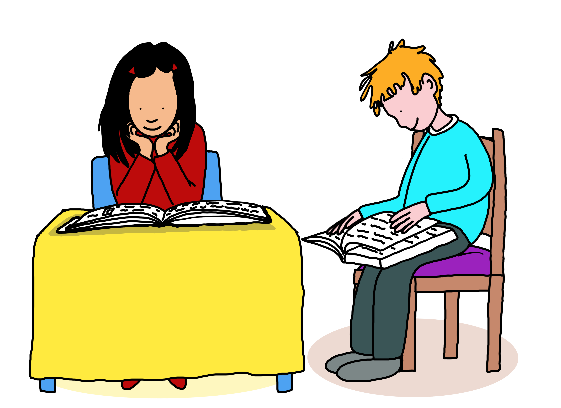 Reading
Reading
Reading is at the heart of all that we do at Malden Parochial School. We inspire our children to become confident and happy readers with a real love of books, which will last a lifetime. In order to achieve this, we use a number of strategies throughout school to develop their skills as readers.
Reading in the EYFS and Year 1
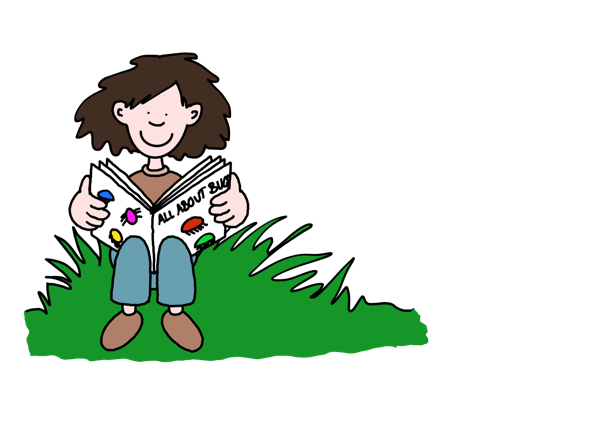 In the summer term of Nursery and at the beginning of Reception, your child will initially bring home wordless books. Books without words have an extremely important part to play in the acquisition of reading skills. The ability to decode words is part of being able to read but being able to understand what is being read and to re-tell the story is vital. Alongside these books you child will be exposed to key words, words that can decoded (sounded out) and others that are ‘look and say’ (tricky words). They begin with simple phrases and captions to decode and move onto to simple one sentence a page books. These books will allow them to practise the phonic skills they have learnt and develop their understanding of text. As they grow in confidence, the books begin to have more complex sentences matching the phonic sounds learnt and a greater variety of vocabulary.
In the summer term of Nursery and at the beginning of Reception, your child will initially bring home wordless books. Books without words have an extremely important part to play in the acquisition of reading skills. The ability to decode words is part of being able to read but being able to understand what is being read and to re-tell the story is vital. Alongside these books you child will be exposed to key words, words that can decoded (sounded out) and others that are ‘look and say’ (tricky words). They begin with simple phrases and captions to decode and move onto to simple one sentence a page books. These books will allow them to practise the phonic skills they have learnt and develop their understanding of text. As they grow in confidence, the books begin to have more complex sentences matching the phonic sounds learnt and a greater variety of vocabulary.
In Reception and Year 1, we teach children to read through reading practise sessions three times a week. These are taught by a trained adult with small groups of approximately six children. The books are matched to the children’s secure phonic knowledge. The groups are rotated and monitored by the class teacher who works with each group over the week. The children’s phonic knowledge and ability to blend is assessed at the end of each half term.
When the children are able to blend, each reading practice session has a clear focus on the key reading skills.
- decoding: application of the knowledge of letter-sound relationships, including knowledge of letter patterns, to correctly pronounce written words
- prosody: teaching children to read with understanding and expression
- comprehension: teaching children to understand the text
Children who find decoding tricky will have extra blending practice built into their small group time.
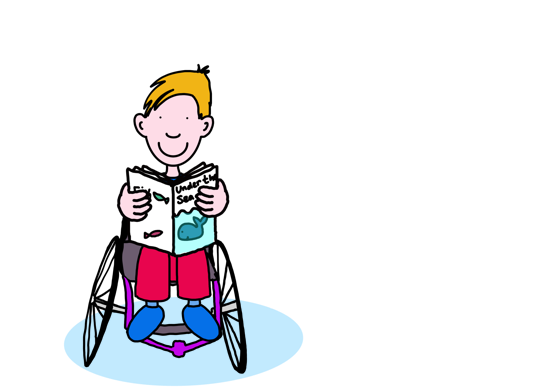 Reading in Year 2
Reading in Year 2
Reading in Year 2 follows a similar pattern to Year 1, with three reading sessions a week. The lowest 20% of the class being heard daily where possible in 1:1 sessions.
Key Stage 2
Reading in KS2 continues to be of a high importance and children in the lowest 20% of the class will be heard at least three times a week where possible in 1: 1 sessions.
All children are encouraged to enjoy sharing with their parents as many books and different types of texts as possible, not only to help them develop a love of reading, but also to begin to appreciate it as an essential skill and part of everyday life.
Click on the links below to see 50 recommended book titles for your child to read and share with you.
Year 2 – Year 6
Guided reading, shared reading, 1:1 reading, whole-class reading
Our curriculum provides reading opportunities in all areas of learning. Reading skills are explicitly taught through guided, shared or 1:1 reading and according to the needs of the child. We have a variety of books to choose from in our scheme, starting with decodable books matched to each child’s reading ability, which is assessed regularly.
Whole class reading takes place throughout the day as the children read instructions, information on the board activity sheets and topic material.
Comprehension
 Reading is much more than just being able to read words. It is essential that children also read with understanding. As part of the teaching of reading skills at Malden Parochial, staff work on developing the children’s knowledge of the different text types and the varying ways in which information can be presented in books and other publications. Children are also encouraged to think about different authors, the style of books they write, their choices of vocabulary to involve the reader and how they build a story or write a poem.
Reading is much more than just being able to read words. It is essential that children also read with understanding. As part of the teaching of reading skills at Malden Parochial, staff work on developing the children’s knowledge of the different text types and the varying ways in which information can be presented in books and other publications. Children are also encouraged to think about different authors, the style of books they write, their choices of vocabulary to involve the reader and how they build a story or write a poem.
We develop the skills of comprehension alongside the decoding and sight reading skills to ensure that children learn to read and comprehend at the same speed. We teach this skill through reading to and with the children.
In Key Stage Two, children further enhance their fluency, decoding and comprehension. This also helps to develop children’s independence as readers.
When developing research skills, children are asked to consider which texts and alternative sources are likely to best provide the information they need and to choose the most appropriate. They are taught how to ‘skim read’, pick out key words and information from a piece of text, interpret diagrams and graphs, answer questions and take notes.
We all know that to be able to read fluently, with understanding, is a crucial life skill. We continually use it to make sense of the world around us and to access and share information in the workplace. For some it is also a relaxation and a lifelong pleasure!
Home reading
 In Reception and Year 1, decodable reading practice books are taken home to ensure success is shared with the family. Parents are also encouraged to share and read to their children for pleasure – books from the classroom will be sent home to read and share together.
In Reception and Year 1, decodable reading practice books are taken home to ensure success is shared with the family. Parents are also encouraged to share and read to their children for pleasure – books from the classroom will be sent home to read and share together.
In Years 2-6, children have access to a wide range of books in the classroom which they can enjoy for pleasure. Our expectations are that children should read for at least ten minutes every day, and this should be recorded in children’s reading records/planners. Children from Nursery/Reception onwards have a home reading record. The parent/carer records comments to share with school and the school will write in this on a regular basis to ensure communication between home and school. From Year 2 – Year 6, each class has a termly class reader which is read together in class and used in English lessons.
Reading Areas
All classes should have access to an inviting reading area with interesting displays. These may include an interactive element where children can add recommendations or book reviews. In Nursery/Reception and Year 1, children have access to the reading corner every day in their free flow time and the books are regularly refreshed.
Special Reading Events
Children across the school have regular opportunities to engage with a wide range of Reading for Pleasure events (book fairs, author visits and workshops, World Book Day etc.)
Poetry
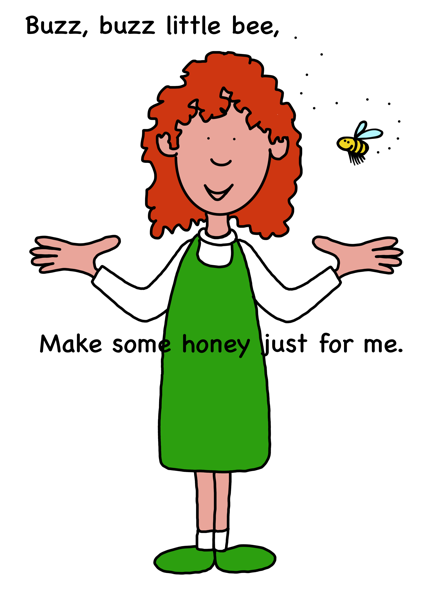 Poetry and rhyme are an important part of learning to read and at Malden Parochial the children listen to poems, recite poems, and have lots of opportunities to read and write their own poems. It is an excellent way for young children to develop an awareness of new language, phonic patterns, and rhythms. Poetry broadens reading choices and can foster empathy and build emotional connections to language. It enriches the children’s vocabulary from as early as listening to stories with rhyme, where the repetition of words can strengthen their understanding of new words. Poetry is an important tool to teach different literacy skills. It can support the children’s learning of phonics, heighten their awareness of individual sounds within words through alliteration, assonance and rhyme. Daily poems and rhymes enrich the children’s learning.
Poetry and rhyme are an important part of learning to read and at Malden Parochial the children listen to poems, recite poems, and have lots of opportunities to read and write their own poems. It is an excellent way for young children to develop an awareness of new language, phonic patterns, and rhythms. Poetry broadens reading choices and can foster empathy and build emotional connections to language. It enriches the children’s vocabulary from as early as listening to stories with rhyme, where the repetition of words can strengthen their understanding of new words. Poetry is an important tool to teach different literacy skills. It can support the children’s learning of phonics, heighten their awareness of individual sounds within words through alliteration, assonance and rhyme. Daily poems and rhymes enrich the children’s learning.
At Malden Parochial, children are encouraged to learn poems to recite aloud in class and in front of other classes during the year. We also hold a biennial Poetry Competition where children from Nursery to Year 6 take part. Learning to recite a poem aloud encourages rhythm in speech, voice control and develops the confidence of performing.
Reading KPIs
- Year 1 - reading
- Year 2 - reading
- Year 3 - reading
- Year 4 - reading
- Year 5 - reading
- Year 6 - reading
Click below to view recommendations of poetry books for the different ages.
EYFS - Nursery/Reception
 |
A Great Big Cuddle - Michael RosenMichael Rosen's poems for very young children. The poems are accessible and playful, designed to capture elements of life that very small children can relate to; choosing toys, falling into a puddle or waiting for lunchtime to come. A brilliant introduction to poetry that engages young children with rhythmic and playful verses that are easy to join in with and learn by heart. |
 |
Poems Out Loud - Laurie Stansfield & Various PoetsA collection of illustrated verses from a range of contemporary children's poets, performers and hip-hop artists. The poems have been selected for their suitability to read aloud and cover topics like minibeasts, pirates, animals and night time. |
 |
Zim Zam Zoom - James Carter & Nicola ColtonA collection of sixteen energetic poems and rhymes to ignite the senses, with topics including fireworks, food, dragons and splashy puddles. Colourful illustrations make the book a delight to look at as well as to listen to being read aloud. |
 |
My Village: Rhymes from Around the World - Danielle Wright & Mique Moriuchi22 nursery rhymes from different countries around the globe, with each poem appearing in its own language next to an English translation. Examples include 'Song of Kites' from Japan, 'Spotty Spider' from Tonga and 'Snowman Frost' from Denmark. The selected poems are short, playful and set on full-colour illustrated spreads. |
 |
|
 |
Wriggle and Roar – Julia Donaldson and Nick SharattThere are rhymes to make you wriggle and giggle, shrug and sigh, snap like a crocodile and slither like a snake. |
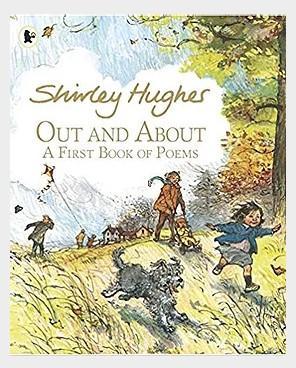 |
Out and About – Shirley HughesA collection of poems about Katie and her little brother Olly who go out and about, romping through the changing seasons. They take pleasure in the different elements and weather conditions – sunshine, wind, rain, mist and even snow. From the joys of the seaside to the miseries of being poorly. |
KS1 - Years 1/2
Recommendations of Poetry books for KS1
 |
A First Book of the Sea - Nicola Davies & Emily SuttonPoetry meets science and art in an anthology of sea-themed poems. Each double-page spread explores a different aspect of the sea, from pebbles and sandcastles to whales and puffins to lighthouses and sailors. Each new aspect is drawn out in beautifully poetic language that makes the reader reflect with awe at the natural and man-made wonders of the sea, the pleasure it provides and the unanswered questions it holds. |
 |
Perfectly Peculiar Pets - Elli Woollard & Anja BoretzkiWe lovely whacky A-Z of weird and wonderful pets. There is a different pet poem for each letter of the alphabet (from armadillos to zebras via kookaburras to umbrella birds!), the poems are quirky and energetic, making them perfect to read aloud. |
 |
Poems About Festivals - Brian Moses, Kristina Swarner & Various PoetsPoet Brian Moses selects an appealing variety of poems about different festivals. Different styles of poetry capture the spirit of a range of festivals, from Pancake Day and Holi to Eid-ul-Fitr and Chinese New Year. |
 |
I Am the Seed That Grew the Tree: A Nature Poem for Every Day of the Year - Fiona Waters & Frann Preston-GannonA poetry anthology that includes a new nature poem for every day of the year. The collection of 366 poems contains a really interesting mix of poems from well-known favourites from Christina Rossetti and Walter de la Mare to more modern offerings by Benjamin Zephaniah and Carol Ann Duffy, with each poem reflecting the seasonal changes associated with that day's position in the year.
|
 |
Crazy Mayonnaisy Mum - Julia Donaldson and Nick SharrattA collection of Julia Donaldson's amusing poems and rhymes that are perfect for reading aloud and sharing. The laugh-out-loud poems about everyday topics are brimming with word-play and rhyme, making this collection an excellent choice for helping children to engage with poetry in an entertaining way. |
 |
When We Were Young – A.A. MilneA. A. Milne’s classic book of poetry for children. This is the first volume of rhymes written especially for children by Milne, featuring E. H. Shepard’s original illustrations, this collection is a heart-warming and funny introduction to children’s poetry. |
Lower KS2 - Years 3/4
Recommendations of Poetry books for Lower KS2
 |
I am a Jigsaw: Puzzling Poems to Baffle your Brain - Roger StevensA collection of poems for children who love solving brainteasers and cracking codes. It includes riddles, acrostics, kennings and paradiddles. There is also a section of the book designated to how to write different types of puzzle poems. |
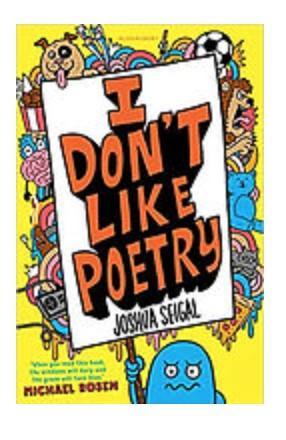 |
I Don’t Like Poetry - Joshua SeigalThis collection of poems is designed to raise a chuckle, from the clever and witty to the downright silly. It is an imaginative collection of verses which all children will enjoy. |
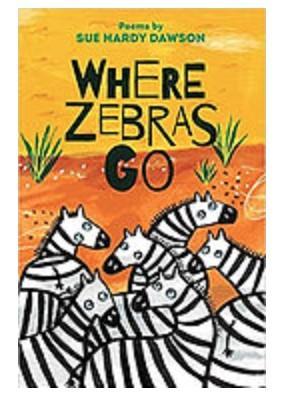 |
Where Zebras Go – Sue Hardy DawsonThis poetry book offers a perfectly-pitched variety of imaginative poems covering topics of interest to children, including animals, sports, playtime, growing up and protecting the environment, all delivered through entertaining verses including a number of shape poems. |
 |
Heard it in the Playground – Allan AhlbergAllan Ahlberg's collection of poems and songs paint a funny and accurate portrait of primary school life, with highly appealing and atmospheric |
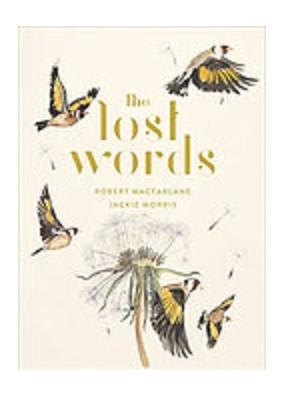 |
The Lost Words – Robert Macfarlane and Jackie MorrisThis book offers a variety of imaginative poems covering topics of interest to children, including animals, sports, playtime, growing up and protecting the environment, all delivered through entertaining verses including a number of shape poems The Lost Words seeks to ‘summon what has vanished’ and celebrate a host of disappearing words relating to the natural world. This is a poetry book about preservation - of nature, of language and of childhood. It is a beautifully illustrated over-sized hardback volume. Inside the book, you will find acrostic ‘poem-spells’, with each one intending to preserve a nature word that has disappeared from the dictionary as well as to evoke the unique sounds, sensations and moods associated with the experiences of encountering wildlife first-hand. |
 |
Spaced Out - James Carter, Brian Moses & Various PoetsBlast off into galaxies unknown with this illustrated collection of poems about space by a variety of children's poets. A poetry of diverse poetic forms covering topics from planets and asteroids to black holes and shooting stars |
Upper KS2 - Years 5/6
Recommendations of Poetry books for Upper KS2
 |
Quick, Let's Get Out of Here! - Michael Rosen & Quentin BlakeThe poems look at small moments from growing up, from sibling squabbles to best friends to the feeling of trying to avoid being told off by mum and dad. Many of the poems can be seen ›being performed on the poet's dedicated YouTube channel. |
 |
Overheard in a Tower Block - Joseph Coelho & Kate MilnerJoseph Coelho depicts one boy's experiences of growing up in a tower block, told through a series of poems that explore different aspects of growing up, including parental separation, school bullies, exam results and adolescence. The poems are powerful, thought-provoking and vivid, with themes that will feel relatable to many young people. Suitable for the crossover between Upper KS2 and Lower KS3. A Kid in My Class |
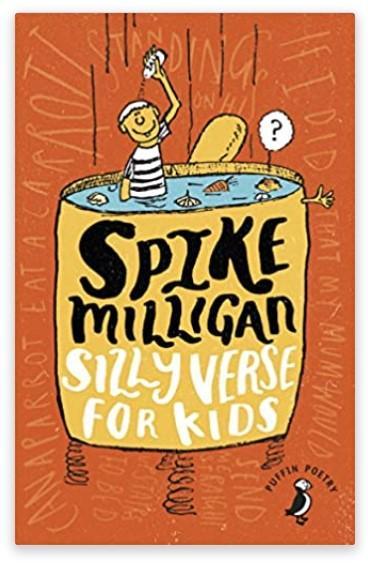 |
Silly Verse for Kids – Spike MilliganA collection of the absurd, ridiculous, sublime and characteristically anarchic verse from the brilliant Spike Milligan. With his very own illustrations, this collection, which includes the famous On the Ning Nang Nong will make you laugh from the bottom of your belly - just like Spike did. |
 |
A Kid in My Class - Rachel Rooney & Chris RiddellA popular collection that captures the essence of primary school life through a series of poem portraits depicting different characters in a class, from the fidgety pup to the know-it-all. The poems are entertaining and empathy-building.
|
 |
Moon Juice - Kate Wakeling & Elina BraslinaThis collection of witty and intriguing poems that are lively, thought-provoking and are likely to be enjoyed for their humour, language play and rich variety of themes that appeal to upper KS2, including magic, space, relationships, family life and human emotion. |
 |
Be The Change: Poems to Help you Save the World - Liz Brownlee, Roger Stevens & Matt GoodfellowThree children's poets come together to create a collection of positive poems about looking after the planet. The poems explore the theme of sustainability encouraging positive steps that make an impact on the world around us. |
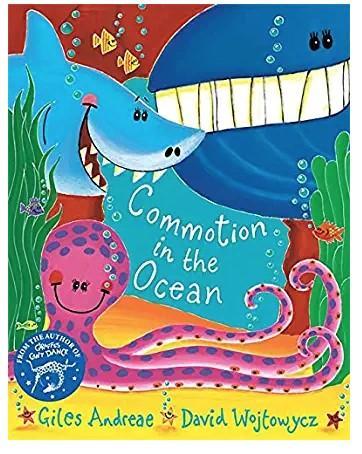 Mad About Dinosaurs!
Mad About Dinosaurs!